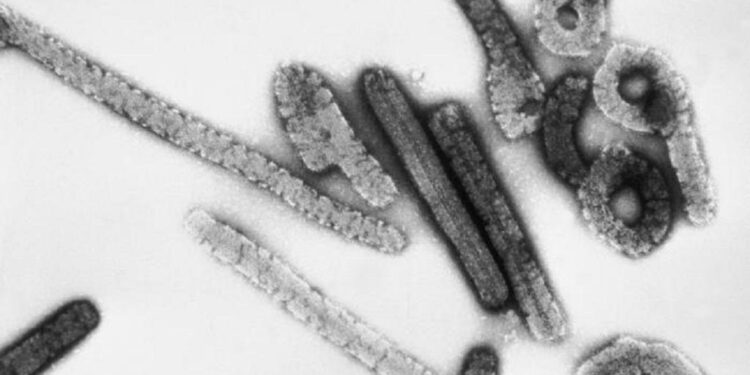The Ghana Health Service (GHS) has announced earlier results of Ghana’s first outbreak of Marburg virus disease.
In a statement released on July 17, 2022, further testing at the Institute Pasteur in Dakar (IPD), Senegal has confirmed the results from Noguchi Memorial Institute for Medical Research.


“The samples were sent to IPD with the support of the World Health Organisation (WHO) for validation in line with standard practice, this being the first time Ghana has confirmed Marburg Virus Disease,” the statement said.
The disease was suspected following the identification of two persons who met the case definition for an acute haemorrhagic fever and were reported in Adansi North district, Ashanti Region.
“So far, 98 contacts identified including those from Sawsla-Tuna-Kalba district from Savannah region are currently under quarantine and being monitored by the Ashanti and Savannah Regional Health Directorates of the GHS.”
GHS with partners including the Wildlife department has put in place measures including the isolation of all identified contacts including doctors and other health workers.
Marburg is transmitted to people from fruit bats and spreads among humans through direct contact with the bodily fluids of infected people, surfaces, and materials.
Marburg is a highly infectious viral haemorrhagic fever in the same family as the more well-known Ebola virus disease. It is only the second time the zoonotic disease has been detected in West Africa. Guinea confirmed a single case in an outbreak that was declared over on 16 September 2021, five weeks after the initial case was detected.
Marburg is transmitted to people from fruit bats and spreads among humans through direct contact with the bodily fluids of infected people, surfaces, and materials.
Although there are no vaccines or antiviral treatments approved to treat the virus, supportive care – rehydration with oral or intravenous fluids – and treatment of specific symptoms, improve survival. Illness begins abruptly, with high fever, severe headache, and malaise
A range of potential treatments, including blood products, immune therapies, and drug therapies, as well as candidate vaccines with phase 1 data are being evaluated.































